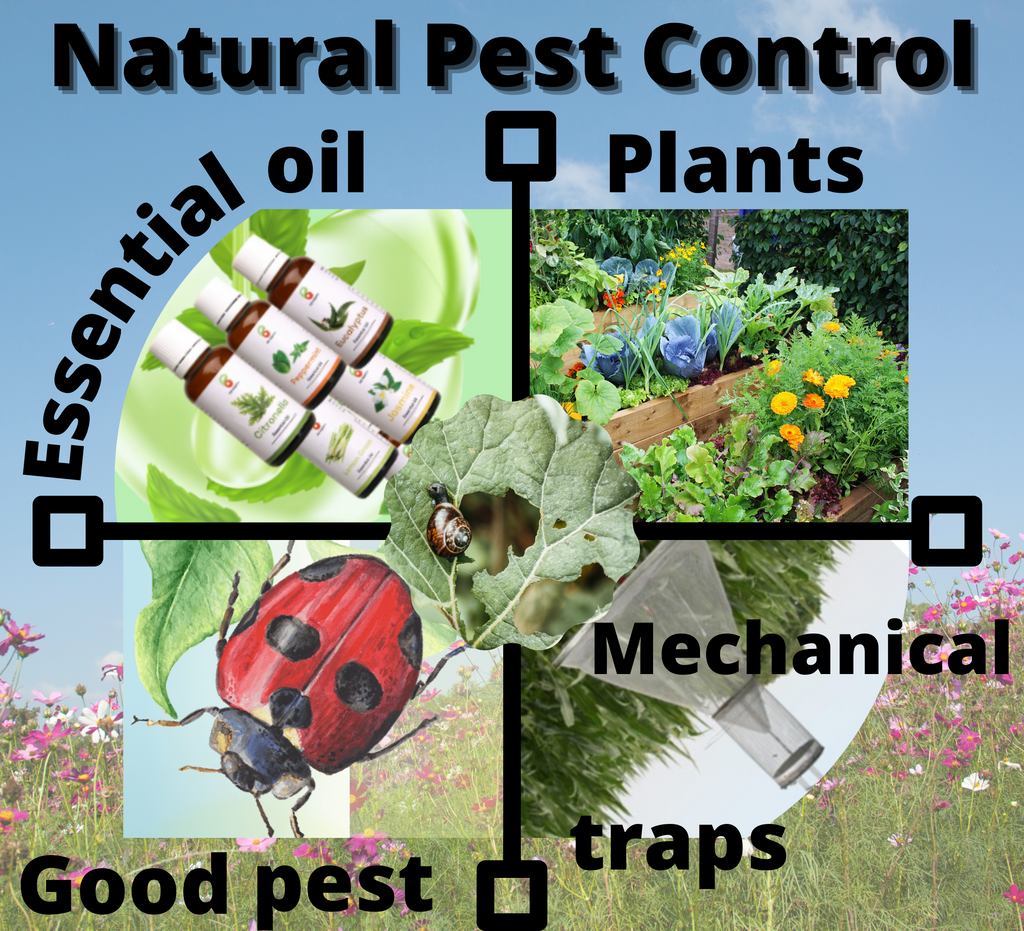Control Garden Pests: Simple Ways

Gardening is a delightful hobby that brings us closer to nature. But what happens when nature bites back in the form of pests? Don't let critters turn your green sanctuary into a battleground. Let's explore simple ways to control pests in gardens, ensuring your plants thrive without harsh chemicals. Ready to reclaim your garden? Let's dive in!
Understanding Garden Pests
Before we declare war on pests, let's understand our tiny foes. Garden pests include insects, rodents, and other creatures that harm plants. Some common culprits are aphids, slugs, snails, and rodents. Each has its own preferences and habits, so a one-size-fits-all approach won't cut it.
Natural Pest Control: Your First Line of Defense
Why resort to chemicals when nature provides its own pest repellents? Here are some eco-friendly gardening methods to keep pests at bay.
Beneficial Insects: Nature's Hitmen
Did you know that not all insects are pests? Some, like ladybugs, lacewings, and praying mantises, are predators that feed on garden pests. Attract these beneficial insects by planting pollen and nectar-rich plants. Think of it as hiring a tiny security team for your garden.
Companion Planting: A Match Made in Heaven
Companion planting is like setting up your plants on a blind date, hoping they'll benefit each other. Certain plants, when paired together, can repel pests. For instance, planting marigolds around your tomatoes can deter nematodes (microscopic worms). It's like having a bouncer at the garden nightclub, keeping troublemakers out.

Garden Maintenance: A Clean Garden is a Happy Garden
Regular garden maintenance can prevent pest infestations. After all, a tidy garden is less inviting to critters.
Keep it Clean
Dead leaves, weeds, and decaying plants are like a five-star hotel for pests. Clear away garden debris regularly to make your garden less hospitable to unwanted guests.
Mulch Matters
Mulching doesn't just retain moisture and regulate temperature; it also keeps pests away. Opt for organic mulch like wood chips or straw, which can deter certain pests. However, keep mulch away from plant stems to avoid creating a pest hideout.
DIY Pest Repellents: Concoctions from Your Kitchen
Who knew your pantry held the secret to plant protection? Here are some DIY pest repellents you can whip up in a jiffy.
Soap Spray: A Slippery Solution
Insects hate soap. Mix a teaspoon of mild dish soap with a quart of water, and you've got a simple yet effective pest repellent. Just spray it on your plants, and watch those critters slide away.
Garlic Spray: The Stinky Savior
Garlic isn't just great for adding flavor to your dishes; it's also a potent pest repellent. Blend a few cloves with water, strain, and spray. The strong smell will send pests packing.

Physical Barriers: Building a Wall
Sometimes, the best offense is a good defense. Physical barriers can keep pests away from your precious plants.
Netting and Row Covers
Netting and row covers act like a force field around your plants, protecting them from insects and birds. They're particularly useful for protecting fruit trees and vegetable gardens.
Copper Tape: A Slug's Worst Nightmare
Slugs and snails hate copper. Wrapping copper tape around your plant pots can deter these slimy critters, keeping your plants safe.
Encouraging Biodiversity: The Circle of Life
A diverse ecosystem is a healthy one. Encouraging biodiversity in your garden can help control pests naturally.
Birds: Your Feathered Friends
Birds are a gardener's best friend. They feed on insects, helping to control pest populations. Attract birds to your garden with birdhouses, feeders, and birdbaths.
Bats: The Night Shift
Bats are nocturnal insect-eating machines. A single bat can eat thousands of insects in a night. Install a bat house to encourage these nighttime guardians to take up residence in your garden.
Conclusion: Reclaim Your Garden
Controlling garden pests doesn't have to be a daunting task. With these simple ways to control pests in gardens, you can reclaim your green space and enjoy a thriving, pest-free sanctuary. Remember, nature is on your side. By embracing natural pest control methods and maintaining a healthy garden ecosystem, you're not just protecting your plants; you're also protecting the environment.
So, are you ready to evict those pesky critters and take back your garden? The battle plan is drawn, and the troops are rallying. It's time to declare your garden a pest-free zone!
FAQs
What is the best natural pest control for gardens? The best natural pest control methods include encouraging beneficial insects, companion planting, using DIY pest repellents, and maintaining a clean garden.
How can I prevent pests in my garden? Regular garden maintenance, including clearing debris and using mulch, can prevent pests. Physical barriers and encouraging biodiversity can also help.
What are some eco-friendly gardening practices? Eco-friendly gardening practices include using natural pest control methods, conserving water, composting, and encouraging biodiversity.
How do I get rid of aphids naturally? You can get rid of aphids naturally by attracting beneficial insects like ladybugs, using a soap spray, or blasting them off plants with a strong water spray.
What plants repel pests? Plants that repel pests include marigolds, mint, rosemary, lavender, and chives. These plants contain strong smells or compounds that deter pests.
For further reading, check out these authoritative resources:
0 Response to "Control Garden Pests: Simple Ways"
Post a Comment